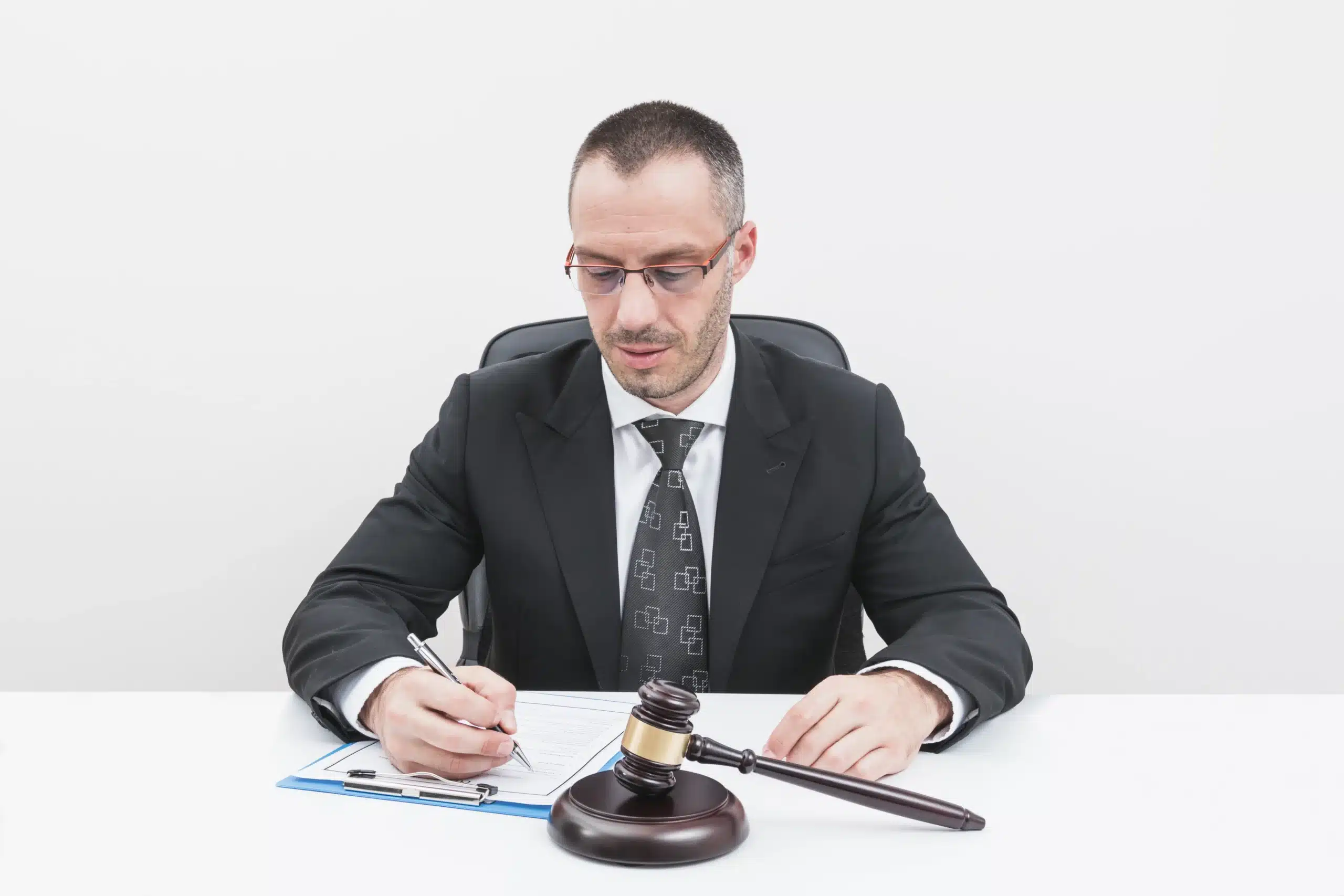In the intricate world of legal disputes, personal injury defense is a cornerstone for individuals and entities accused of causing harm, often due to someone else’s negligence. Whether allegations arise from negligence, malpractice, or other circumstances, understanding personal injury defense is vital to navigating the complexities of the legal system, which can be costly for all parties involved. This article provides key insights from a seasoned personal injury defense attorney, emphasizing the strategies, processes, and principles defining this critical law area and the pursuit of justice as a fundamental goal.
Understanding Personal Injury Defense
Personal injury defense is a legal specialization that focuses on representing defendants accused of causing harm to others. These claims often involve accidents, negligence, or liability disputes across various scenarios, including:
- Motor Vehicle Accidents: Defending drivers, vehicle owners, or companies against negligence claims in road incidents, often involving bodily injury claims.
- Medical Malpractice: Representing healthcare providers accused of substandard care resulting in patient harm.
- Product Liability: Defending manufacturers or distributors accused of selling defective or harmful products.
- Premises Liability: Protecting property owners in cases where injuries occur on their premises, such as fall accidents and slip and fall accidents.
Personal injury defense attorneys also handle workers compensation claims and personal injury lawsuits.
Suppose you’re seeking a legal services provider in Utah. In that case, choosing a firm experienced in handling these complex cases, such as a dedicated personal injury lawyer in St. George, and seeking legal counsel is essential to ensure your rights are protected and your defense is robust.
The Role of a Personal Injury Defense Attorney
A defense attorney’s role is comprehensive, involving a strategic blend of legal knowledge, investigative skills, and advocacy, as well as the ability to accurately value claims, negotiate settlements, and advocate effectively for clients. Key responsibilities include providing strong legal representation as a central aspect of the attorney’s role:
Managing client expectations and understanding the needs of potential clients are also essential for successful outcomes.
1. Case Assessment
The attorney evaluates the case by reviewing all pertinent information: accident reports, witness statements, medical records, and any prior relevant documentation, including whether prompt medical attention was sought. This assessment determines the case’s strengths and potential vulnerabilities.
2. Evidence Development
Collecting and preserving evidence is critical. This includes obtaining surveillance footage, reconstructing accidents with experts, conducting depositions, and collaborating with professionals such as medical experts or engineers to substantiate the defense.
3. Pre-Trial Negotiations
Attorneys often strive to resolve claims without needing trial through negotiation or alternative dispute resolution methods, such as mediation. These settlements aim to reduce costs, mitigate risks, and achieve equitable outcomes for both parties, with securing fair compensation as a primary objective.
Understanding success rates in similar personal injury cases can also help inform negotiation strategies and improve the likelihood of a favorable settlement.
4. Courtroom Advocacy
When a case proceeds to trial, the defense attorney meticulously crafts arguments to dispute liability or reduce potential damages, with the jury playing a crucial role in determining the outcome. This includes cross-examining witnesses, introducing counter-evidence, and invoking relevant legal precedents to challenge the plaintiff’s claims, as both sides are ultimately seeking justice through the trial process.
Motor Vehicle Accidents: Defense Perspectives
Motor vehicle accidents are among the most frequent sources of personal injury claims, and defending these cases requires a strategic and detail-oriented approach. Personal injury lawyers representing defendants play a significant role in determining liability and the extent of compensation owed. Each accident presents unique challenges, often involving multiple parties, complex accident scenes, and factors such as road conditions, vehicle maintenance, and driver behavior.
Defense attorneys begin by thoroughly reviewing all available medical records, accident reconstruction reports, and witness statements, while an injured driver should focus on choosing the right injury attorney after a car accident to protect their own interests on the other side of the case. This comprehensive analysis helps identify inconsistencies or gaps in the plaintiff’s version of events, which can be crucial in challenging liability. Accident reconstruction experts may be brought in to provide a clearer understanding of how the incident occurred, supporting the defense’s narrative.
By leveraging their legal expertise and investigative skills, personal injury attorneys can uncover evidence that may significantly impact the outcome of the case. Whether disputing the severity of injuries, questioning the accuracy of medical treatment records, or highlighting the role of another party, defense lawyers are essential in ensuring that their clients’ rights are protected throughout the legal process. Ultimately, a well-prepared defense can lead to reduced liability or even a complete dismissal of claims, resulting in more favorable outcomes for clients involved in motor vehicle accidents.
Medical Malpractice and Liability in Defense Cases
Medical malpractice is a highly specialized area within personal injury law, demanding a deep understanding of both legal and medical complexities. Defense attorneys in these cases must possess specialized knowledge to effectively protect healthcare professionals and institutions from liability. The stakes are high, as allegations of medical malpractice can have serious professional and financial consequences.
To build a strong defense, attorneys collaborate closely with medical experts to scrutinize medical records, evaluate treatment protocols, and determine whether the standard of care was met. This process often involves dissecting complex medical procedures and identifying whether any alleged deviations truly constitute negligence under the law. By applying legal insights and leveraging expert testimony, defense attorneys can effectively counter the plaintiff’s claims and demonstrate that the care provided was appropriate.
In addition, understanding the nuances of healthcare regulations and the evolving standards of medical practice is essential for mounting a successful defense, and staying current with legal news and articles on personal injury and medical liability can be a valuable resource for both attorneys and clients. Personal injury attorneys use their expertise to challenge the validity of claims, protect their clients’ reputations, and minimize potential liability. Through diligent preparation and a thorough grasp of both law and medicine, defense lawyers play a crucial role in safeguarding the interests of those accused of medical malpractice.
Generative AI in Personal Injury Defense
The adoption of generative AI is revolutionizing the way personal injury lawyers approach defense strategies. By integrating advanced AI tools into their practice, attorneys can gain valuable insights that enhance evidence gathering, streamline the review of medical records, and improve overall case analysis. Generative AI can quickly identify patterns in accident data, highlight inconsistencies in claims, and even predict potential case outcomes based on historical information.
These technological advancements allow legal professionals to work more efficiently, increasing overall productivity and enabling them to focus on developing stronger defense arguments that ultimately shape real-world outcomes, as illustrated by many personal injury settlement stories and life after the award. AI tools can assist in organizing large volumes of evidence, preparing for depositions, and supporting settlement negotiations with data-driven insights. However, it is essential for attorneys to remain vigilant about the limitations of AI, including potential biases and the need to ensure that AI-generated evidence meets court admissibility standards.
By thoughtfully incorporating generative AI into their workflow, personal injury lawyers can stay ahead of the competition, deliver better outcomes for their clients, and adapt to the evolving demands of the legal landscape. The result is a more effective and informed defense, grounded in both technological innovation and sound legal judgment.
Compensation and Damages: What Defendants Need to Know
For defendants in personal injury cases, understanding compensation and damages is a crucial aspect of managing risk and potential financial exposure. Personal injury attorneys must be adept at evaluating the various types of damages that may be claimed, including economic damages (such as medical expenses and lost wages), non-economic damages (like pain and suffering), and, in some cases, punitive damages.
Defense attorneys carefully analyze the plaintiff’s claims by reviewing medical records, accident reconstruction reports, and the details of medical treatment received. This thorough assessment helps determine the validity and extent of the alleged injuries, as well as the potential value of the case. Knowledge of the average auto liability claim and factors influencing settlement amounts—such as the severity of injuries, property damage, and the impact on the plaintiff’s life—enables attorneys to develop strategies aimed at minimizing damages.
By staying informed about compensation trends and the legal process, defendants can make more informed decisions and work with their attorneys to achieve fair and reasonable outcomes, and broad legal overviews such as a firm’s comprehensive sitemap of personal injury and defense resources can help orient them to the topics involved. Whether negotiating settlements or preparing for trial, a clear understanding of compensation and damages is essential for protecting one’s interests and navigating the complexities of personal injury litigation.
Common Defense Strategies
Each case requires a tailored approach, but common defense strategies include:
- Disputing Negligence or Causation: Establishing that the defendant did not owe a duty of care or that the alleged negligence did not directly cause the injury.
- Mitigating Damages: Demonstrating that the plaintiff’s claimed damages, such as medical expenses or lost income, are exaggerated or unrelated to the incident.
- Comparative Negligence: Highlighting the plaintiff’s role in contributing to the incident, which may reduce or eliminate the defendant’s liability under comparative negligence statutes.
- Technical Defenses: Raising procedural issues, such as the plaintiff’s failure to comply with statutory deadlines (statute of limitations) or jurisdictional requirements.
- Assumption of Risk: Arguing that the plaintiff voluntarily accepted known risks associated with an activity, absolving the defendant of liability.
For example, in a case involving unintentional injuries from a slip and fall accident, a defense attorney might use comparative negligence to show that the plaintiff’s own actions contributed to the incident, potentially reducing the defendant’s liability.
For those in Southern Utah, consulting a St. George personal injury attorney with experience in defense strategies can be a pivotal step in building a strong case and learning more about the Palmer Litigation law firm in St. George may be a helpful starting point.
Key Considerations in Personal Injury Defense
While every case is unique, defendants should keep the following principles in mind to safeguard their rights:
Reviewing personal injury statistics can help defendants and their attorneys anticipate challenges and develop informed defense strategies.
1. Preserve Evidence Immediately
Timely evidence preservation is critical. Spoliation of evidence—whether intentional or unintentional—can severely weaken the defense and lead to adverse legal consequences.
2. Understand Insurance Involvement
In many personal injury cases, an insurance company will be pivotal in funding the defense or negotiating settlements, and early communication with counsel through a firm’s contact page for personal injury and criminal defense consultations can clarify how insurance and legal strategy intersect. Understanding your policy limits, exclusions, and obligations under your policy is essential.
3. Watch for Third-Party Claims
Sometimes, a defendant may identify a third party who shares liability. This could involve filing a cross-claim or seeking indemnification from another party, such as a subcontractor or a product manufacturer.
4. Avoid Public Disclosure
Statements made to insurance adjusters in public forums or on social media can be used against you. Always consult your attorney before discussing the case outside of privileged communications.
Protecting Your Rights: Practical Steps
To effectively navigate a personal injury claim, and to understand the circumstances of the injured party, take proactive steps; similarly, those facing allegations on the criminal side should promptly explore options such as working with an experienced St. George criminal defense lawyer.
- Seek Experienced Counsel: Promptly engage a personal injury defense attorney to ensure early intervention and strategic case planning, and if alcohol-related charges overlap with an injury case, strongly consider retaining a top DUI lawyer in St. George to address the criminal aspects.
- Document Thoroughly: Maintain a comprehensive record of events, communications, and expenses, as these can serve as critical evidence, especially when you are hiring a DUI attorney in Southern Utah and need to provide complete information about the incident.
- Cooperate with Your Attorney: Transparent and consistent communication with your legal team ensures a cohesive and credible defense strategy.
- Implement Safety Measures: Take steps to improve safety and reduce the risk of future claims by addressing hazards and promoting safe practices.
Conclusion
Defending against a personal injury claim, where most personal injury cases are resolved before trial, requires legal expertise, strategic foresight, and meticulous preparation. Individuals and businesses can better protect their rights and achieve favorable outcomes by understanding the intricacies of personal injury defense. Whether through out-of-court resolution or vigorous advocacy at trial, the key lies in partnering with experienced counsel—especially as personal injury firms are adapting to new technologies and client demands—who can navigate the complexities of the law and advocate effectively on your behalf.



